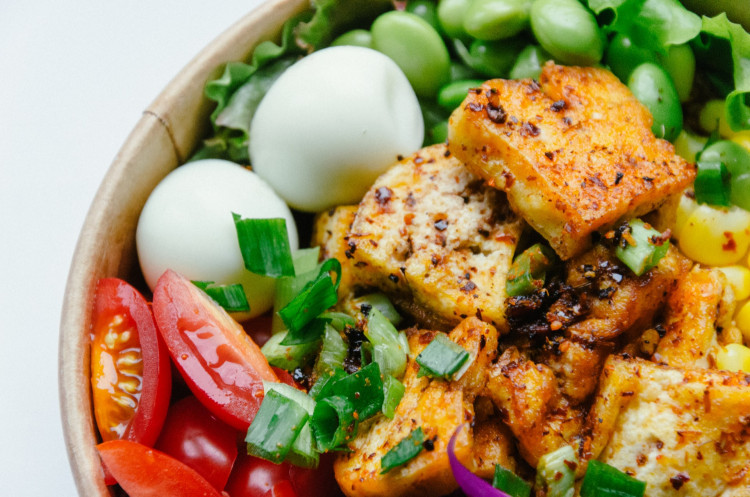Protein is an integral part of a healthy diet. It used to be the only concern of body-builders and gym fanatics, but now many of us are eager to make sure we eat enough. Having your daily quota as a vegetarian can be difficult if you're not sure which are the best protein-rich food sources.
Discover the best recipes rich in protein that burst with fresh veggie flavors that are essential to a balanced diet.
Eggs
Eggs are a simple, easy source of nutrients. A single hard-boiled egg contains around 7 g of protein and provides a nutritious breakfast or lunchtime meal. They're easy to digest and low in calories, too.
Nuts and Seeds
Nuts and seeds are a functional, munchy source of protein and essential fats. Some types are especially rich in protein: almonds, cashews, chia seeds, and flaxseeds are all common protein choices. A 30 g almond contains around 6 g of protein, which will see you throughout the afternoon.
Soya and Tofu
Soy protein is an incredibly versatile ingredient that can be converted into several delicious kinds. For instance, tofu is made from soy milk curds and can be great when bulking out veggie stir-fries or salads. It comes in various forms: silken, firm, or extra firm and is another low-calorie, high-protein product you can use reasonably easily - 100 g of firm tofu provides about 8 g of protein.
Soya beans can be consumed individually or made into soy milk, miso, or tempeh. The soybeans contain about 15 g of protein per 100 g. While our bodies digest plant and animal proteins in various ways, soya is a great veggie meat substitute and is definitely adaptable.
Dairy Products
Dairy products are packed full of calcium and protein, both of which are essential to a healthy diet - 100 g of cow's milk provides about 3 g of protein, while 100 g of cheddar cheese contains about 25 g of protein. If you are concerned about saturated fat and calories, choose fat-reduced options.
Vegan options include milk from nuts such as hazelnuts or almond milk; however, be aware of the very low protein levels found in-store versions. The protein content of soy milk is more comparable to dairy.
A spoonful of Greek yogurt is also a perfect way to increase protein, with about 6 g of yogurt for every 100 g. Try to top up your muesli, smoothie bowls, or cereal with a hearty sprinkling of fresh Greek yogurt.
Pulses and Grains
Lentils, pulses, and beans are an excellent mainstay source of protein - 100 g of boiled lentils constitute around 9 g protein and are a hearty way to improve soups, stews, and casseroles. Chickpeas, black beans, kidney beans, and even baked beans are a convenient way to boost your intake of protein.
There are also a number of grains that can add protein to a super-simple recipe, such as oats, barley, rice, and quinoa. In particular, quinoa is a valuable veggie product, as it is one of the few plant sources listed as a complete protein. This means all nine of the essential amino acids are in it.






